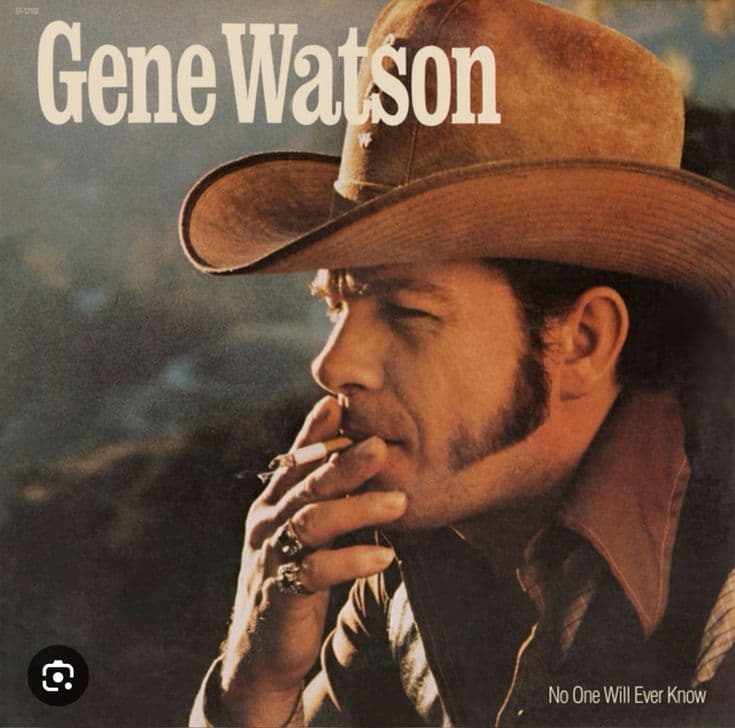
“Farewell Party”: A Heartbreaking Invitation to a Love’s End
There are melodies that, even after decades, can conjure a feeling, a time, a specific ache in the heart. For countless country music aficionados, particularly those of us who remember when country truly was country, Gene Watson’s “Farewell Party” is one such enduring classic. It’s not merely a song; it’s a raw, unflinching look at the devastating finality of a relationship, delivered with a voice so pure and emotionally resonant it could break a stone. Released in February 1979 as the second single from his album Reflections, this poignant ballad quickly etched itself into the annals of country music history. While it didn’t hit the very top spot, “Farewell Party” achieved a highly respectable peak position of No. 5 on the Billboard Hot Country Singles & Tracks chart, and No. 9 on the Canadian RPM Country Tracks chart. Its success wasn’t just in numbers, though; it was in the way it spoke to the universal experience of heartbreak, cementing its status as Gene Watson’s signature song.
The genesis of “Farewell Party” reaches back further than Gene Watson’s 1979 rendition. The song was actually penned by the brilliant songwriter Lawton Williams, who also had the original recording in 1960. Later, Little Jimmy Dickens recorded it in 1961, and even country giants like Johnny Bush and Waylon Jennings took a turn with the tune. Yet, it was Gene Watson’s interpretation that resonated most deeply, turning it into the iconic lament we know today. The story behind the song, regardless of whose rendition you favor, is steeped in the stark reality of a love that has withered. It speaks from the perspective of a man whose world is crumbling around him, as his partner prepares to leave, seemingly with joy in her heart.
The meaning of “Farewell Party” is layered with a bitter irony. On the surface, it’s about a literal “farewell party” that the narrator’s departing lover is throwing. But beneath that, it’s a chilling metaphor for the end of a relationship, where one person is celebrating their freedom while the other is left utterly devastated. The singer, with heartbreaking sincerity, wishes his departing lover well, even as his own world collapses. He imagines the laughter, the joy, the “good time” she’s having, while he himself faces a future devoid of her presence. It’s a profound exploration of unrequited love, betrayal, and the excruciating pain of watching someone you adore walk away, seemingly without a backward glance. The song perfectly encapsulates the feeling of being utterly discarded, of being so insignificant to someone that they can celebrate your absence.
What makes Gene Watson’s performance of “Farewell Party” so unforgettable is his unparalleled vocal delivery. He possesses one of those rare, traditional country voices that doesn’t rely on excessive vibrato or vocal acrobatics. Instead, his strength lies in his clarity, his masterful control, and his incredible ability to infuse every syllable with genuine, raw emotion. When Watson sings “Farewell Party,” you don’t just hear the words; you feel the ache, the resignation, the almost unbearable sorrow. His voice carries the weight of a thousand heartbreaks, resonating with anyone who has ever felt the sting of being left behind. The arrangement, typical of classic country, is sparse yet effective, allowing his voice to be the star. The steel guitar weeps alongside him, and the rhythm section provides a steady, mournful pulse, all serving to amplify the song’s profound sadness.
“Farewell Party” isn’t just a record; it’s a touchstone for moments of profound personal reflection. It speaks to the quiet despair that can accompany a broken heart, and the bitter dignity with which one tries to face the inevitable. It’s a song that brings forth memories of simpler times, perhaps when the radio played nothing but pure, unadulterated country music, and emotions were laid bare in three-minute masterpieces. For those who appreciate the true artistry of a country ballad, Gene Watson’s “Farewell Party” remains a powerful testament to the enduring power of a song to capture the universal human experience of love, loss, and the bittersweet, often painful, art of saying goodbye.